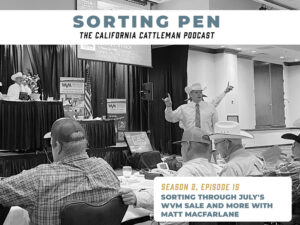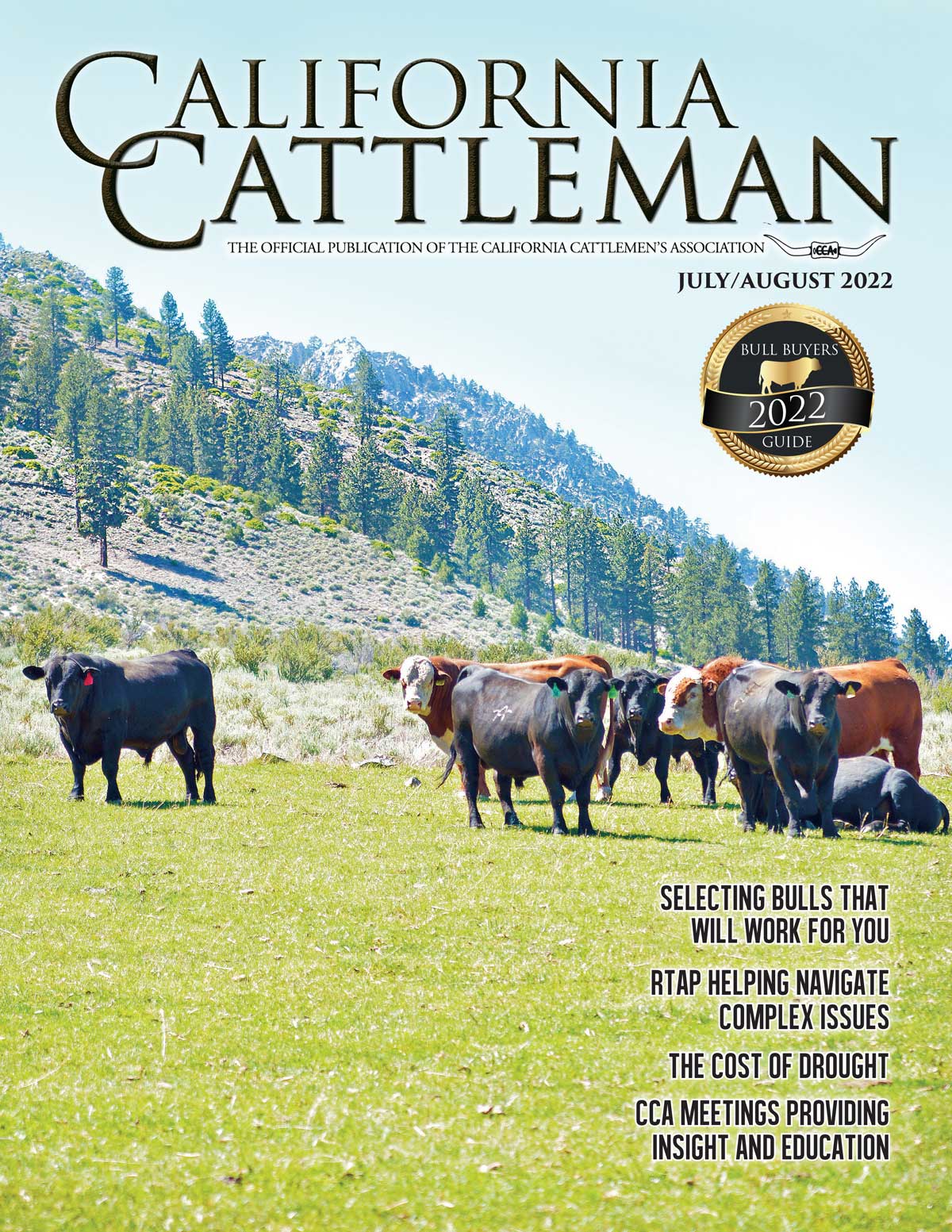
LEGISLATIVE BULLETIN
July 25, 2022
To read the full version each week, please subscribe below.
USFWS Rolls Back Trump-Era ESA Regulation Regarding Critical Habitat Exclusions
Earlier this month, a federal court issued an order reversing three Trump-era Endangered Species Act (ESA) reforms mere weeks after the U.S. Fish and Wildlife Service (USFWS) finalized a rule rescinding the Trump-era regulatory definition of “habitat.” This month’s Hot Irons newsletter provides a detailed explanation of these recent changes in ESA regulation, and notes that via these rollbacks the USFWS and the National Marine Fisheries Service “have succeeded at dismantling four of those five Trump-era ESA reforms” prioritized by the agencies in a June 2021 press release.
On Thursday, the USFWS published a final rule that rescinds the fifth Trump Administration ESA reform targeted by the Biden Administration.
As reported in Hot Irons, in December of 2020 the Trump Administration issued a final rule which allowed permittees, lessees or contractors operating on federal lands – including grazing permittees – to request that certain federal lands be excluded from critical habitat designations based on undesirable “economic or other impacts.” The Trump-era rule permitted the USFWS to consider these requests on a case-by-case basis and gave the agency the discretion to exclude such lands from critical habitat designation where prudent.
The final rule published Thursday will revert the USFWS to a 2016 policy which largely prevents the agency from excluding federal lands from critical habitat declarations. The final rule is scheduled to take effect on August 22.
For a deep dive regarding the Biden Administration’s ongoing efforts to reshape ESA regulations, see this month’s edition of Hot Irons.
CDFA Announces 2023 Farm Bill Listening Sessions
On Wednesday, the California Department of Food and Agriculture (CDFA) announced that it “is holding several public forums across the state seeking input from farmers, ranchers and other stakeholders on priorities for the 2023 Farm Bill.”
The Farm Bill is a package of federal legislation reauthorized roughly every five years, governing conservation initiatives undertaken by the Natural Resources Conservation Service, disaster assistance and safety net programs administered by the Farm Service Agency, nutrition programs and a wide array of other policy matters implicated by agriculture.
CDFA will be hosting four listening sessions which “will be used to help develop recommendations that will be shared with California’s Congressional delegation and the leadership of the Senate and House agricultural committees.” The listening sessions will be held at the times and locations listed below:
- August 10, 9:00-11:00am, virtual hearing via Zoom (click here to register);
- August 16, noon-2:00pm, Copley Conference Room, 5660 Copley Dr., San Diego (register here to participate virtually via Zoom);
- August 23, noon-2:00pm, Fresno County Farm Bureau, 1274 W. Hedges Ave, Fresno; and
- September 7, 9:00-11:00am, Urban Tilth, 323 Brookside Dr., Richmond.
CDFA is also accepting written comments submitted via email to FarmBill@cdfa.ca.gov.
CCA staff has discussed the Association’s 2023 Farm Bill policy priorities with CDFA leadership and continues to work with our national partners at the National Cattlemen’s Beef Association to inform NCBA’s Farm Bill advocacy before Congress.
Newsom Declares Wildfire Emergency in Mariposa County Due to Oak Fire
On Saturday, Governor Gavin Newsom issued a proclamation declaring a state of emergency in Mariposa County due to the Oak Fire. The proclamation was issued while the fire was still only 11,500 acres in size, with a press release from the Governor’s office noting that the fire “has destroyed homes, threatened critical infrastructure and forced the evacuation of more than three thousand residents.”
As of this morning, the Oak Fire has scorched 16,791 acres and is 10% contained. The emergency declaration provides Mariposa County with greater access to state resources to combat the blaze and improves impacted residents’ access to emergency assistance.
Earlier Saturday, California secured a Fire Management Assistance Grant from the Federal Emergency Management Agency, providing additional resources for the state to suppress the Oak Fire.
CCA will continue to keep membership informed about state and federal responses to wildfires within the state. Additional information about these and other wildfire incidents can be found via Cal Fire and InciWeb.
SWRCB Curtails Additional Sacramento San-Joaquin Delta Water Rights
In addition to water rights curtailments previously detailed in Legislative Bulletin, the State Water Resources Control Board on Wednesday imposed several new curtailments within the Sacramento-San Joaquin Delta watershed. Additional Sacramento River tributary curtailments include all appropriative water rights for the Putah Creek subwatershed with a priority date of 1850 or later.
In addition, appropriative water rights in the Merced River subwatershed with a priority date of 1859 or later, appropriative and riparian water rights on the Fresno River watershed and appropriative water rights in the Mokelumne River subwatershed with a priority date of 1890 or later have been curtailed.
The above curtailments are expected to continue through summer and the beginning of fall, depending on precipitation.
Access the Delta Drought Webpage to see if your water rights have been curtailed by this or a previous curtailment order.
For questions about curtailment and suspension notices or how to comply, please contact the Rancher Technical Assistance Program at (916) 409-6902 or rtap@wrstrat.com.
USDA Designates Fifteen California Counties Impacted by Disastrous Freezes Eligible for Emergency Loans
A series of staggered freezes from February 21 through April 3 triggered a need for emergency credit for producers to recover losses. These loans are to recover losses of equipment and livestock, reorganize the farming or ranching operation or refinance certain debts.
The United States Department of Agriculture (USDA) Farm Service Agency (FSA) announced a deadline of March 1, 2023, for producers from fifteen counties to apply for credit through emergency loans.
These are the Primary Eligible Counties:
Amador, Butte, Calaveras, Colusa, El Dorado, Glenn, Madera, Merced, San Joaquin, Solano, Stanislaus, Sutter, Tehama, Yolo and Yuba.
If your county is not listed above, you may still be eligible for this emergency credit if your county is a listed contiguous county.
Click here to see if your county is eligible for the emergency credit.
Click here for more information about emergency loans.
Ranchers should contact their county FSA office to apply for an emergency loan or inquire regarding other drought disaster relief resources available through FSA. You can find your county office’s contact information here. In addition, the Rancher Technical Assistance Program may be able to assist you in navigating the application process and is available at (916) 409-6902 or rtap@wrstrat.com.
Upcoming Industry Events
Working Rangelands Wednesdays Webinars
June 29 – Sept. 7, Virtually
Join UC Cooperative Extension advisors, specialists, researchers and ranchers for a biweekly summer webinar series highlighting applied, land manager-oriented solutions for rangeland drought challenges. Webinars will air biweekly from 6pm to 6:45pm. Click here to register and receive a link to the following scheduled webinars.
July 27: Early weaning
August 10: Culling vs. Feeding
August 24: Irrigating with limited water
September 7: Fall/Winter Forecast and Remote Sensing
2022 Cattle Industry Summer Business Meeting
July 25-27, Nugget Casino Resort, Reno, Nevada
Come join the National Cattlemen’s Beef Association, Cattlemen’s Beef Promotion & Research Board, American National CattleWomen, Inc. and the National Cattlemen’s Foundation for the 2022 Cattle Industry Summer Business Meeting in Reno, Nevada. The meetings will cover a range of topics including current issues, programs, initiatives, projects and much more. To register for the event click here. Click here to see current schedule.
Public Lands Council Annual Meeting
August 24-26, Cody, Wyoming or virtually
Come join the Public Lands Council for their Annual Meeting in Cody, Wyoming. A virtual option is available for those who can’t attend in person. The meeting will cover an array of topics including current issues, panel discussions and much more. To register for the event, click here. Click here to see the agenda.
UC Davis Animal Science Bovine Artificial Insemination Clinic
September 12-14, UC Davis Feedlot and Beef Barn
The UC Davis Young Cattlemen’s Association will be hosting an AI Clinic taught by veterinarians from the UC Davis School of Veterinary Medicine. To register for the event, click here. Click here to see the flyer.
Industry News
Federal agencies lay the groundwork to ignore the Supreme Court The Hill “In Weyerhaeuser v. U.S. Fish and Wildlife Service, the Supreme Court held that land designated by the U.S. Fish and Wildlife Service as “critical habitat” under the Endangered Species Act (ESA) must be habitable for the species the Service seeks to protect.” To continue reading, click here.
Preventative fires credited with saving Yosemite sequoias Associated Press “A famed grove of giant sequoias in Yosemite National Park survived its first wildfire in more than a century, thanks to efforts to regularly burn the undergrowth beneath the towering trees, a forest ecologist who toured the site said Tuesday.” To continue reading, click here.
California Agricultural Neighbors report outlines collaborative actions for enhanced food safety in Salinas Valley California Department of Food and Agriculture “The California Department of Food and Agriculture (CDFA) and the Monterey County Farm Bureau are joining together to announce the release of California Agricultural Neighbors: neighbor-to-neighbor best practices to help enhance localized food safety efforts.” To continue reading, click here.
California Closes Forestland to Reduce Wildfire Risks Exasperated by Climate Change Intelligent Living “California is currently experiencing its peak wildfire season, when the state often has its fiercest blazes, some of which can require widespread evacuations. In response, the largest private landowner in California halted public access to all of its forestlands due to the risks posed by drought and wildfires.” To continue reading, click here.
Matt MacFarlane is back on the podcast for Season 2, Episode 15 to talk about his experience at Western Video Market’s July sale in Reno. Later in the episode he talks about the upcoming fall bull sale run and gives advice for deciding which bulls to buy. Click here to listen.



